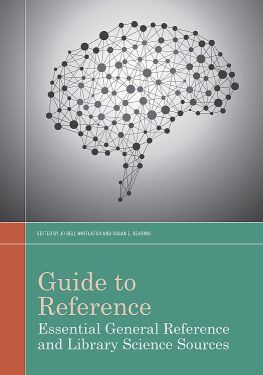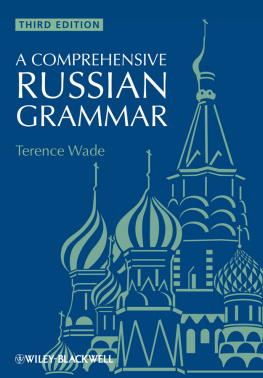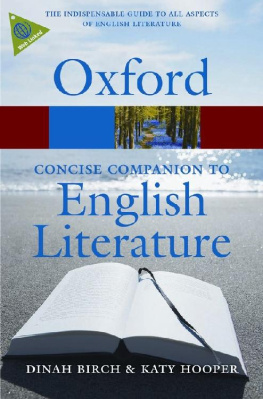, by A.D.P. Briggs
, by W. Gareth Jones
, by David M. Bethea
The Reference Guide to Russian Literature aims to be a wide-ranging guide to the main writers of Russian literature and to their best-known works. We therefore include entries on some 273 writers and 293 works. The Guide covers, albeit selectively, the entirety of Russian literature, from the Kievan period to the post-communist writing of the Russian Federation, although there is an unashamed bias towards the 19th and 20th centuries and, to some extent, towards contemporary authors.
The writer entries are arranged in alphabetical order (A to Z in the western alphabet). Many of the entries on writers are accompanied by essays on individual works of literature, placed chronologically after the appropriate writer entry. Anonymous works can be found in the alphabetical sequence under the English-language title of the work (cross-references are provided for alternative titles).
The basic brief to contributors was to provide essays of approximately 1000 words, both for writers (from Pushkin down to the lesser known) and for single works. Some, particularly those on a few of the most important figures, are up to half as long again; some are a little shorter. The entry for each writer consists of a biographical sketch of the subject, plus a list of the writers primary works in chronological order and grouped by genre where applicable, including translations into English, and a selected list of bibliographies and critical studies on the author. While there is a certain near-uniformity intended in the length of both writer and work entries, there is considerable variation in the scale of the Publications lists, which are designed, as far as possible, to reflect the publishing profile, status, and critical reception of the figure concerned. Priority has normally been given to secondary sources in English, or in English-language editions, where these are available.
The Publications lists include separately published books, including translations into English. On-going editions are indicated by a dash after the date of publication. Dates refer to the first publication (often in journals) unless indicated otherwise. The first mention of a title in the text is followed by an English translation in parenthesis. In cases where there are no published translations a literal translation is provided within square brackets.
A further word should be said on the choice of entries, which was based on the recommendations of the advisers (listed on page xi). As far as writers are concerned, selection has been limited to Russian (as opposed to other Slavs, or citizens of the former Soviet Union), and to non-Russian writers writing in Russian. Thus Vasil Bykov, who writes in Belorussian, is omitted, whereas Chingiz Aitmatov, a Kirgiz writing predominantly latterly at least in Russian, is included, as is Fazil Iskander (an Abkhazian who writes in Russian) and Gennadii Aigi (a Chuvash Russian-language poet). Critics and thinkers have not been included, unless they are also well known as creative literary figures (thus Chernyshevskii and Herzen are in, but not Dobroliubov or Rozanov; Solovev and Tynianov, but not Bakhtin or Lotman). A single exception is made in the case of Belinskii, whose prominence is such that any Reference Guide to Russian Literature was felt to be unthinkable without his presence. Normally we have been prepared to include only leading exponents of creative writing (or khudozhestvennaia literatura ); in the 20th century, however, we are persuaded that the genre of memoir literature has assumed such an importance that Nadezhda Mandelshtam, Evgeniia Ginzburg, and Lidiia Ginzburg had to be accommodated. The declared preference for a generous inclusion of new writers has necessitated the leaving out of a number of figures well known in the Soviet period whose reputation is no longer, and whose importance seems no longer, what it once was: writers for whom space might certainly have been found had a volume such as this been compiled ten or 20 years ago. In any case, of course, debate around the margins on who should or should not have been included can never be fully legislated for.
Our policy regarding Russian-language writing means that Vladimir Nabokov is, perforce, included, but he is represented as far as work entries are concerned by selections from that portion of his oeuvre written originally in Russian (we therefore include for instance The Defence and The Gift, but not Pale Fire or Lolita). Regarding work entries otherwise, Chekhov has the highest number (the four main plays, together with four of his stories); other major figures are restricted to a maximum of seven; many have fewer and quite a number of writers featured have no additional work entries. It may be considered that a number have been adequately characterized in their writer entry. Some may not have produced any single outstanding work; others may be known only for their output of short lyric poems or prose miniatures: we chose not to commission 1000-word essays on a single lyric poem and did not feel it desirable to include a range of much shorter additional entries. Essays on individual works have normally been devoted to more substantial compositions: novels, plays, narrative poems, collections or cycles of short stories or of lyric poetry. Authors whose publishing profile does not conform to such a pattern may have suffered accordingly. Preference has normally been given to works of a general cultural, as well as purely literary, significance and frequently but by no means exclusively to works known in English-language translation.
The main editorial thrust of this volume is to provide readable and informative essays, plus an essential bibliographical guide, on the main writers and works of Russian literature for the student and the general reader. The publications lists are selective, rather than aspiring to be exhaustive.
The Reference Guide includes 13 Introductory Essays, which give coverage to most periods, topics, and genres of Russian literature. These essays provide a context and serve in sum as a comprehensive introduction to the body of writer and work entries that follows. One Russian writer namely Pushkin (as the father of Russian literature) has here been singled out for more detailed treatment: an essay having been commissioned on him and the inspiration he drew from English literature, in the shape of the works of Byron and Shakespeare.





